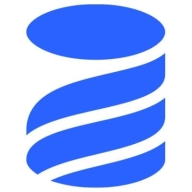

Liquibase and AWS CodeCommit compete in database change management and version control. Liquibase seems to have the upper hand due to its detailed feature set and ease of deployment, while AWS CodeCommit is praised for robust features and integration with other AWS tools.
Features: Liquibase offers powerful change automation, tracking capabilities, and specialized database management. AWS CodeCommit integrates seamlessly with AWS tools, provides comprehensive version control, and offers versatility within the AWS ecosystem.
Room for Improvement: Liquibase needs better documentation, more intuitive setup processes, and broader user support. AWS CodeCommit would benefit from improved performance speed, support for non-AWS integrations, and better user guidance for non-AWS environments.
Ease of Deployment and Customer Service: Liquibase is known for straightforward deployment and responsive customer service. AWS CodeCommit simplifies deployment for existing AWS users but can be complex for others, integrating well within AWS infrastructure.
Pricing and ROI: Liquibase is cost-effective with good setup costs and long-term ROI. AWS CodeCommit is more expensive initially but offers high ROI for large-scale deployments within the AWS ecosystem. Liquibase provides value for database-focused projects, while AWS CodeCommit suits those needing comprehensive version control within AWS.


AWS CodeCommit is a fully-managed source control service that hosts secure Git-based repositories. It makes it easy for teams to collaborate on code in a secure and highly scalable ecosystem. CodeCommit eliminates the need to operate your own source control system or worry about scaling its infrastructure. You can use CodeCommit to securely store anything from source code to binaries, and it works seamlessly with your existing Git tools.
Liquibase is a migration-based open source database version control solution that relies on a changelog to track what changesets have been deployed to a database, and what additional changesets needs to be applied to a database in order to migrate a database schema to a specific version. Liquibase supports an XML model for defining changesets so that database schema changes can easily be translated to another DBMS platforms. As an open source solution, Liquibase is ideal for smaller teams and projects or for teams that have ample time to invest in extending and adapting the open source capability to meet their needs.
We monitor all Version Control reviews to prevent fraudulent reviews and keep review quality high. We do not post reviews by company employees or direct competitors. We validate each review for authenticity via cross-reference with LinkedIn, and personal follow-up with the reviewer when necessary.